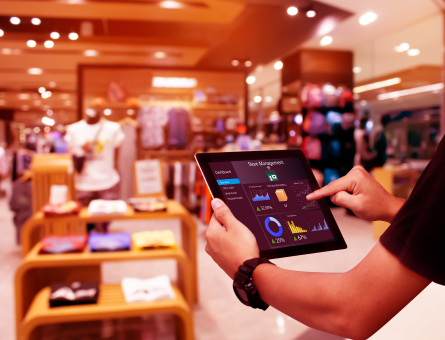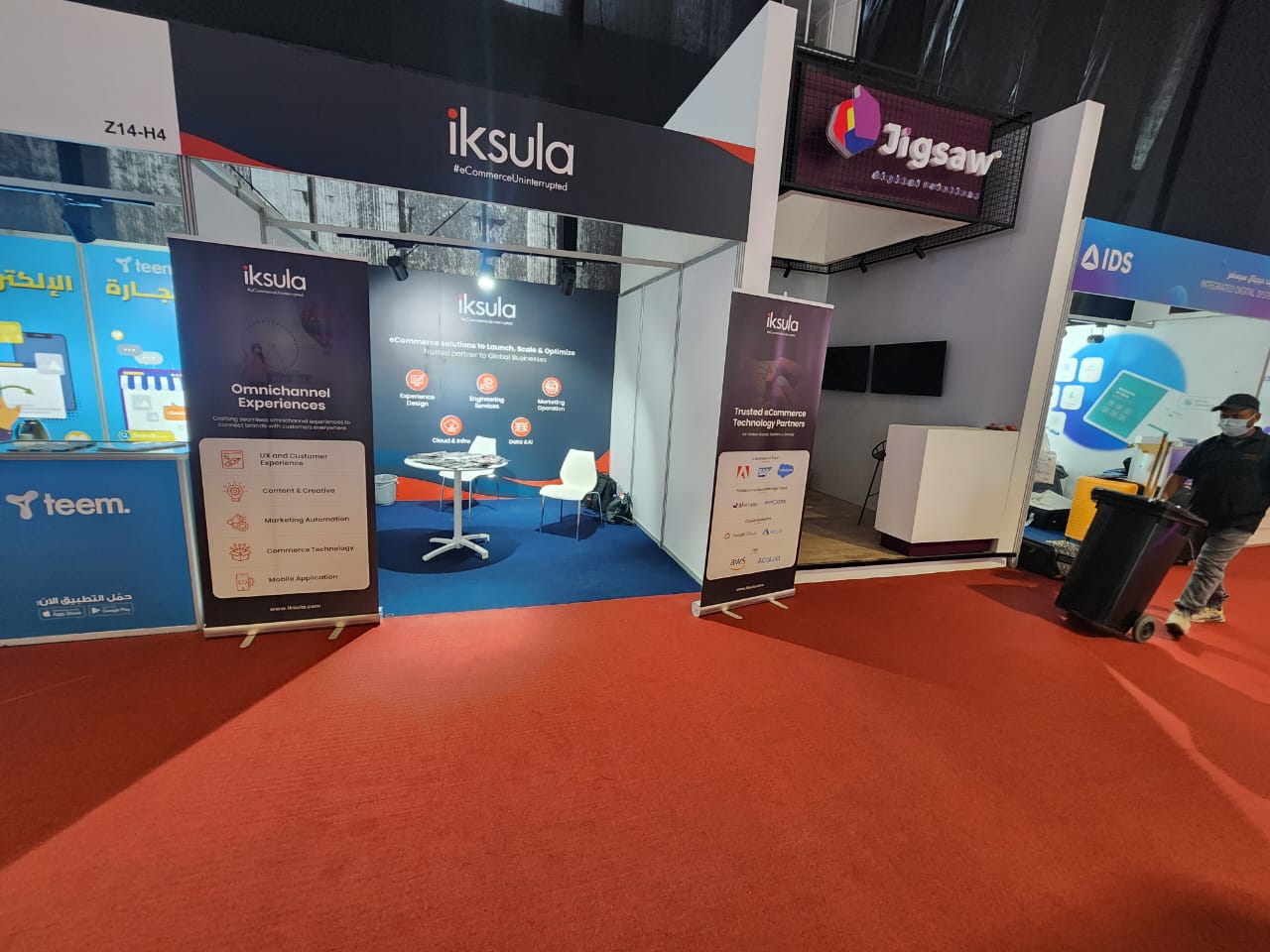Businesses have used marketing strategies to cater to customers’ wants for several decades now. With E-commerce businesses rising at the current rate, the speed of demand for services, products, etc., is skyrocketing. Keeping up with this demand can be time-consuming, costly, and overwhelming for businesses. Here is where Artificial Intelligence (AI) and Machine Learning (ML) can help businesses, particularly e-commerce businesses. AI marketing can help avoid the human margin of error.
Artificial Intelligence can process vast amounts of data within a short period of time, more than a human ever could. This could be beneficial for businesses in that they can quickly reach customers through personalized marketing campaigns. Personalized marketing campaigns improve customer experiences, which guarantees customer retention. AI can also make the whole process more efficient. Let’s say an e-commerce store sees a massive influx of customers, and these customers interact with the website daily. Each customer is a data point. Every action they take counts as a trail of data. Their browsing history, clicks, preferences, and even the time they spend looking at a product– all of this is data that the business has to process. Processing this data manually will consume a massive amount of time, which could cost you countless opportunities.
AI can work in the background while businesses focus on other aspects. It will analyse these data points quicker and in real time. Businesses could learn which products are doing well and which aren’t, which customers are likely to return, and personalize marketing campaigns that align with the brand tone and intended customers. This is the power of AI in marketing.
The Evolution of AI in Marketing: From Idea to Reality
AI can be a powerful source if one knows how to use it to their advantage. AI in marketing has been transformative in recent years. It has taken marketing to a new level, especially for e-commerce brands and retailers. AI was once considered a novel technology that would help with small tasks. Today, AI has increased its potential exponentially, making it a core part of many marketing strategies. AI can improve decision-making and drive personalization on a massive scale.
At the heart of the marketing automation strategy is data. In the e-commerce industry, customer preferences can change at the click of a button. AI can help businesses gather vast amounts of data quickly and make sense of it. Through AI in marketing automation, businesses can not only find out how many times a customer clicked on their site but also why they clicked on certain products. Marketing automation tools analyse the customer’s purchase habits, which helps to understand why certain customers stopped purchasing a product/service.
Through this process, AI can help to implement methods to bring back lost customers and make the system better for new customers. Marketing automation for e-commerce businesses could help by analysing customer behaviour and predicting under which circumstances customers are more likely to return. AI in marketing automation tools can also personalize interactions within a matter of seconds.
How Does AI Marketing Work?
Machine learning techniques and algorithms are AI marketing’s best tools. AI uses algorithm analysis and machine learning to analyse data, identify patterns, and predict future consumer behaviour. Consumer data comes from various marketing avenues like social media, websites, advertisements, email interactions, etc. AI uses this data to analyse and draw insights. These insights are then used to personalize customer interactions, marketing automation strategies, and drive efficiency.
AI can optimize marketing messages by segmenting customers based on their past interactions. This streamlines the marketing automation strategy, making it more relevant to the customer and timely. Personalized emails and adjusting bids for digital ads are a routine task. AI can take over these jobs, making the process more efficient. In the process of doing so, AI also learns to continuously analyse customer responses to improve future interactions.
Understanding Customer Data for AI Marketing
Digital media has changed the marketing game in the recent decade. Marketers now have access to massive amounts of data. This raw data needs to be analysed so businesses can form marketing strategies. But the volume of collected data is unprecedented. AI can sift through this data and create a smart marketing strategy, acting as a bridge between chaotic information and meaningful insight.
Collecting and Analyzing Customer Data
Every click, browse, or purchase says a lot about a customer. AI can work through these data points and figure out a purchasing pattern. For instance, marketing automation strategy looks at browsing history and purchasing habits to refine a business’s marketing strategies. Even the time of day when a customer makes a purchase matters.
AI is refining a process that would be immensely time-consuming if done manually. Imagine AI as a data detective, collecting and analysing mountains of information within seconds. Don’t let its efficiency fool you; AI is capable of providing deep insights into your audience through this analysis. With AI, you’re predicting future customer behaviour, not just reacting to it on the surface level.
Using Customer Data to Inform Marketing Strategies
Customer data can be a goldmine of marketing insights if you know how to analyse it. AI takes this goldmine and tells you which customer is likely to purchase a certain product, which customer is most likely to return to purchase the same product, when these customers are likely to place their orders, and which personalized marketing automation strategy would resonate best with them.
AI-driven personalization has become the cornerstone of effective marketing strategies. Marketing automation tools work swiftly to analyse customer behaviour and create targeted campaigns. When the campaigns work well, they drive engagement and customers to the business. If you have ever seen a product or service and thought, “This seems like it was designed just for me!”, that’s your AI working its magic.
AI Tools for Marketing Automation
Marketing automation tools are of utmost importance to any marketer. They will streamline processes like consistent engagement with customers, and do so without added labour.
Overview Of AI Tools for Digital Marketing
Marketing automation tools powered by AI, such as HubSpot and Marketo, automate routine tasks. Businesses are constantly sending out follow-up emails, segmenting audiences, and scheduling social media posts. These processes can be time-consuming. AI can help ease this process. Businesses save time and resources by using AI in marketing automation.
Because AI can predict customer needs, customer service becomes more optimized. Every touchpoint feels personalized. As AI is continuously learning, it also becomes better at predicting certain customer behaviours.
AI Tools for Audience Research and Customer Engagement
SparkToro and Answer Socrates are great AI-powered tools that help marketers understand their audience better. These marketing automation tools analyse behaviours, interests, and pain points. These data points are crucial for crafting messages that resonate with the target audience.
Customer support is handled by AI chatbots and virtual assistants almost instantly. If a customer has a question about a product at midnight, AI would respond instantly. AI can be available 24/7 for customer satisfaction.
The Role of AI in Marketing Automation
AI elevates marketing automation by ensuring tasks are done faster and smarter. Here is how AI achieves that:
- Predictive Analytics: AI analyses customer behaviour and then predicts future outcomes, such as what the customer would want to purchase next or if they would return to repurchase.
- Personalization: AI can use data collected from consumers’ purchase habits and browsing history to recommend new products.
- Email Automation: Email marketing is a great marketing automation strategy. AI has revolutionized this process. It creates personalized emails and sends them in a timely manner to targeted audiences.
- Lead Scoring: AI can also analyse customer purchasing behaviour and predict if they are going to switch brands. This can help the sales team of a business to focus on advertising high-quality products.
- Customer Segmentation: AI analyses customer data and segments them so the marketing strategies can be more streamlined and personal.
- Chatbots and Virtual Assistants: AI-driven chatbots are quicker at responding to customers, and they are available 24/7.
- Content Creation & Marketing: AI-powered tools like Jasper and Writesonic assist in creating personalized content tailored to the audience’s preferences. Tools like Grammarly can optimize grammar, clarity, and tone. AI also optimized content for markets to make it SEO-friendly and perform better in algorithms.
Why Marketers Should Use AI in Marketing Automation
Marketing automation tools can make life easy for marketers while they focus on helping brands scale up. AI-powered marketing automation has many advantages:
- Efficiency: AI is quicker and smarter, thereby saving a ton of time.
- Personalized at Scale: AI processes large amounts of data, yet can personalize a campaign that resonates with a specific customer.
- Enhanced Decision-Making: AI provides data-driven insights. This makes decision-making and campaign design effective and efficient.
- Predictive Analytics: AI can help predict customer behaviour, making it an efficient way to make targeted marketing campaigns.
- Better Customer Engagement: AI interacts with customers in a timely manner, no matter the time of day.
- Cost Savings: AI reduces operational costs by streamlining marketing efforts. Manual tasks are automatically minimized.
- Continuous Learning: Machine learning marketing automation tools are excellent at quickly analysing customer interactions and optimising their strategies as they go.
Marketing Strategies for Business Growth
At Iksula, we believe in walking the walk, just as much as we talk the talk. We’ve experienced firsthand how AI can benefit a business by elevating its marketing efforts. One e-commerce client had been manually segmenting customers based on age and location. When they began using AI in their marketing platforms, they were able to dig deeper. They found patterns that they wouldn’t have found manually, such as whether a certain customer preferred shopping on their phones or computers. This information not only optimized their marketing strategies but also led to a significant increase in conversion rates.
Personalized and Predictive Analytics
Nobody does personalization better and more efficiently than AI-powered marketing automation tools. It has become the hallmark of AI marketing. AI analyses data closely, looking for any predictions about future consumer behaviour. For instance, AI can predict when a customer is ready to repurchase a product or what product they might go for next.
Imagine the power of AI that can tell you not only what your customers are doing now but what they will do next. This insight can be useful to make targeted marketing campaigns, ensuring a higher engagement with your business, website, and products/services.
ROI Optimization and Time Effectiveness
Routine and repetitive tasks can become time-consuming if done manually, especially if there are large amounts of data to be processed. When you have AI-powered marketing tools at your disposal, this repetitive, time-consuming task can function in the background while you focus on growing the business. AI can help you optimize ads, segment emails, and segment customers so your marketers can focus on strategy and creativity.
Not only does AI make the marketing process more efficient for you as a business owner, but it also reduces human errors, resulting in better ROI.
Benefits of Leveraging AI in Marketing Strategy
There are several benefits to leveraging AI in marketing Strategy. AI-powered marketing automation can make the process simpler for businesses while continuing to drive growth. Here are some of the benefits of AI in marketing strategy:
- Enhanced Personalization: AI can help analyse customer behaviour, like purchasing habits, preferences, etc., and use this data to boost engagement and satisfaction.
- Operational Efficiency: Repetitive tasks can be time-consuming. AI marketing takes this time-consuming task and optimizes the process, thereby improving customer experience, enhancing efficiency within business operations, and improving decision-making and sales.
- Boost in Sales: AI in marketing automation can boost sales significantly by identifying customer pain points, recommending products, and predicting trends. This can also lead to a higher ROI.
Overcoming Challenges in AI Marketing
AI has been a boon for the business sector in many ways. However, like everything in life, it has its pros and cons. Businesses can get ahead of these cons by identifying the weak points in AI and preparing for it in advance. Businesses might face some challenges, particularly in the cost efficiency and data privacy verticals.
Addressing Cost Efficiency and Data Privacy Concerns
- Cost Efficiency: AI streamlines marketing costs across various marketing verticals, such as paid ads and influencer outreach. However, for AI to work efficiently, businesses require high-quality data, which could use more resources in the short term.
- Data Privacy: AI collects and processes vast amounts of data. Naturally, the question of privacy and security is raised. Businesses also need to comply with regulations like GDPR when using AI. Businesses require complete transparency to build trust with their customers. You can overcome the privacy challenge by being transparent about how a customer’s data is used.
Mitigating Potential Challenges and Ethical Considerations
AI comes with some questions about its ethics. There is a general worry that AI might have a potential bias. It is up to the businesses to ensure they use AI responsibly and watch out for any biased decision-making.
If AI is biased, for instance, it is usually the case that the particular AI tool hasn’t been sufficiently trained, or it has been trained using incomplete or non-representative data.
Businesses could avoid this setback by continuously auditing their AI models, ensuring data is diverse and aligns with the intended tone and audience. Additionally, businesses can ensure all AI-driven content, whether for marketing or otherwise, is unbiased, transparent, and fair. Adhering to ethical standards also makes your brand more trustworthy.
AI Use Cases in E-commerce
AI has made monumental changes to the business sector by changing how brands interact with their customers, manage logistics, and optimize pricing. The verticals where AI could benefit an e-commerce business are as follows:
Personalized Product Recommendations and Pricing Optimization
AI studies customer behaviour to predict what the customer will purchase next. Similarly, AI can also identify lookalike customers and leverage vast amounts of marketing data. Marketing automation strategy looks at customer preference, purchase history, and browsing history to find patterns and deliver personalized ads, product recommendations, and more in real time.
For instance, let’s say a customer buys a scarf and a pair of boots. AI marketing automation tools can analyse this purchase and recommend a winter coat or offer discounts on similar purchases.
AI-enabled dynamic pricing adjusts product prices in real time by monitoring the supply and demand stats. AI also looks at how competitors price their products and studies customer behaviour. Using this data, AI makes dynamic changes to the prices, ensuring your business stays on the map.
Smart Logistics and Sales and Demand Forecasting
AI has become a beneficial tool for handling business logistics. AI offers meaningful predictive abilities that can help forecast demand levels, transit times, and potential shipment delays. Elements like sensors, RFID tags, and other sources are extremely crucial to AI. Through these elements, AI is able to track information in real time, manage inventory, track shipments, and optimize delivery routes.
AI forecasts sales and demand by analysing historical data and real-time data. This helps AI predict which products could be in demand and when. Businesses can plan their inventory better and more in advance. Stocking is optimized, and there is a reduction in overstocking or stockouts. Business operations also flourish in efficiency under this.
Conclusion and Final Thoughts
AI and machine learning have significantly changed the business sector. Marketing as an industry has benefited from the integration of AI automation tools, revolutionizing the trade and optimizing business operations. AI and machine learning can now be used to automate processes that would take a long time if done manually. Customer behaviour can be studied and used to deliver high-quality and highly personalised experiences. E-commerce brands can use AI to analyse customer data and provide more personalized interactions, optimizing marketing strategies in real time.
AI technology is only going to continue growing. It is already reshaping the future of marketing. Businesses may need to embrace AI-driven strategies to keep up with the ever-changing landscape of the industry. AI-powered marketing automation tools could transform customer engagement, making businesses stand out and grow faster.









































